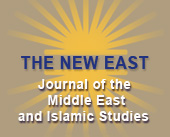Social History: Methodologial Notes
The study of the social history of the Middle East has gained great momentum in recent decades, both in the West and in Israel. There is no doubt about the importance of this field of study to an analysis of social power relations, and to directing public attention to the subalterns or to silenced voices - the poor, farmers, women, slaves and so forth - who for the most part left behind no personal written testimony. Nevertheless, there is disagreement and controversy about the method of study in writing about these groups and the complexity of their relations with the elite. The remarks of Haim Gerber, Uri M. Kupferschmidt, Ehud Toledano and Iris Agmon, which are based on a session of the 2009 MEISAI conference, provide interesting insights into this internal discoures. One issue of discussion is the macro-micro relation in social history; i.e. the relation between an analysis of major trends and developments and the daily lives of the simple people. Another question is whether quantitative research based on processing an abundance of statistical data from the past can reliably reflect the social reality or economic activity of the inhabitants of a city or district. If this is not possible, is the alternative a qualitative, interpretive study, more cultural in nature, which reconstructs a life story or event? An additional issue is the criticism of sources, for example, legal records (sijill), and turning them into a subject of historical research in its own right, by way of tools which were developed in cultural studies and through textual criticism. In a final observation about the situation of the study of social history in Israel, Toledano points to its strengthening within the academic community. However he calls for empathy towards the objects of the research, which should be isolated from political considerations that exist in the shadow of the Israeli-Arab conflict.

